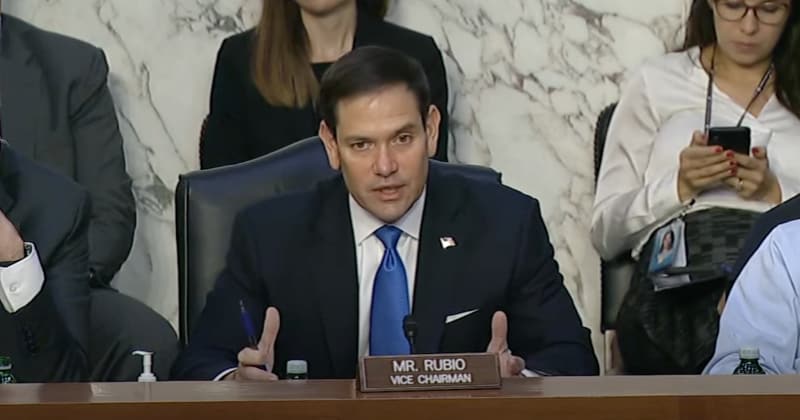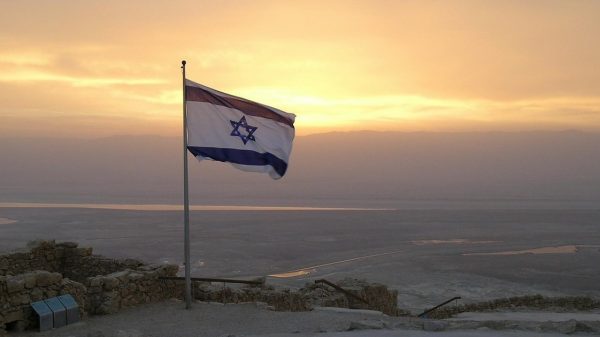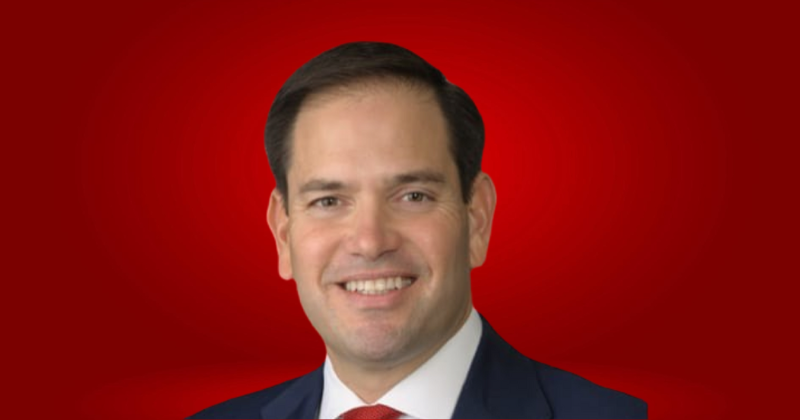On Thursday, in a speech on the Senate floor, U.S. Sen. Marco Rubio, R-Fla., addressed U.S. involvement with the Saudi-led coalition in the Yemen conflict. Rubio said the following:
I want to start by thanking the authors of this War Powers Resolution on Yemen, because while I may not agree with them, and I’m going to describe why in a moment, I think it’s important that the Senate have big debates about big topics and play its rightful role. The Senate and the Legislative branch have an important role to play in setting the foreign policy of the United States. I actually don’t think the War Powers Act is even constitutional. I believe it is unconstitutional restraint on the power of the Commander-in-Chief, and even if it were constitutional, I do not believe that our engagement or what we are doing in Yemen with the Saudi U.A.E. coalition rises to the level of triggering it. That doesn’t mean that Congress should not be involved. And frankly, the one way you could be involved is if you wanted to and you wanted to pronounce yourself on a matter of this topic, you should file to cut off the money. I wouldn’t support it, but that’s where Congress’ power really comes from. Shut off the money. Say no money can be spent on this effort. Few people are willing to do that. And so we rely on these other mechanisms, which exist in our law.
I want to talk more about why I think it’s a bad idea to vote for this, and why I hope more of my colleagues will join me in opposing it. First of all, I understand what’s happening. This resolution is not new. It’s been discussed before. It existed for a number of months, well before Washington Post columnist Jamal Khashoggi’s brutal murder at the Saudi consulate in Yemen. So this is not a new issue, but it has become for many members sort of a proxy, a vehicle by which they can express displeasure at the way the administration and the president have responded to the murder of Mr. Khashoggi.
Now, I want to tell you I think what’s happened to Mr. Khashoggi is an outrage. I don’t need a smoking gun. I don’t need intelligence briefings to tell me that the crown prince is responsible. If you know anything about Saudi Arabia, if you know anything about how their government works, and if you know anything about the crown prince, you know that there is no way that 17 guys close to him get on an airplane, fly to a third country, chop a guy up in a consulate, dispose of the body, and fly back, and he didn’t know anything about it. It’s just not real. It’s also consistent with a pattern of behavior by the crown prince. I mean he literally kidnapped the Prime Minister of Lebanon about a year and a half ago. He has jailed multiple members of his family and government because they weren’t in support of him being a successor to the king. This is a pattern of behavior that needs to be dealt with. I do not believe dealing with it requires us to shatter the U.S.-Saudi Alliance.
Foreign policy is hard because it must be infused by our values and a defense of human rights. And I say this with humility. I hold my record up to that of anyone in this chamber when it comes to fighting on behalf of human rights and for humanitarian causes. And we have a lot of champions of that in the U.S. Senate. But we also have to recognize that has to be balanced sometimes with realism, and it requires us to make difficult decisions. The interesting thing about foreign policy is often it is not a choice between a great idea and a bad idea. It’s often a choice between two less than ideal outcomes and you’re trying to figure out which one would do the least harm and make the most sense. And in many ways what we are facing here this debate about the Saudi-U.S. alliance is that.
I have long recognized and condemned the horrifying human rights violations that occur on a systemic level in Saudi Arabia, and I will continue to do so. But I also recognize that there is a threat in the Middle East posed by Iran and their ambitions, which must be confronted and it must be confronted now regionally or eventually it will pull the United States into direct conflict and Saudi Arabia and our alliance is a key part of that coalition. So it would be a mistake to shatter it. In the case of Yemen, this has become a proxy issue for the broader issue of the murder of Mr. Khashoggi. I know that hopefully later today there will be a resolution offered by the chairman of the Foreign Relations Committee and the Majority Leader, and I hope others will join in it. It makes very clear that the vast majority of members in this chamber condemn what happened to Mr. Khashoggi and hold the crown prince responsible for his murder. There’s no disputing that what’s happening in Yemen is a horrifying humanitarian tragedy. The numbers speak for themselves. Over 57,000 human beings have lost their lives. About half the country’s population of 28 million people are starving to death, including many women and children. 2.3 million people have been displaced from their homes. It’s horrifying and there’s plenty of blame to go around including Iran and their Houthi surrogates.
The first question I would ask is, if this resolution passes and were to become law, would it end this conflict? If we pass this and the White House was somehow forced to do what we’re asking them to do, it wouldn’t end this conflict. This conflict will continue. This fight will continue, and the reason why is pretty straightforward. The Saudis view the Houthis as agents of Iran, they already see agents of Iran via Hezbollah and Syria, and Iraq, and obviously for a long time in Lebanon. And now to their west and south, Yemen and they are not just agents of Iran, they have launched rockets, ballistic missiles into Saudi Arabia after civilian populations, including efforts to kill members of the Saudi royal family and government leadership.
They have threatened global shipping in the region where over 400 million barrels of oil a day transit critical to the world’s energy supplies. So they are going to have a war. There is no way that Saudi Arabia or the U.A.E. or any of these countries is going to allow themselves to be encircled by Iranian agents. This conflict will continue irrespective of what we do. And the Saudis will have no problems buying weapons. One of the sad facts about the world is that countries have plenty of sources from which they can buy this and plenty of countries and arms dealers willing to sell it to you. Will this resolution, if it passes, will it end the suffering? The answer sadly is no, it will not. In fact it is the Houthis that have blocked two access roads that lead to the port, making it difficult to deliver aide. It is the Houthis who placed mines at the entrance of the port. It is the Houthis by the way who are torturing people — torturing people. We’ve seen reporters of faces being smash by batons, of people hanging from chains by their genitals and by their wrists for weeks in places, people being scorched with acid. That is the Houthis. That will continue.
Will this end the warfare? It will not. It will not end the warfare. In fact, I think it has the potential to trigger broader warfare. First of all it won’t end the warfare because right now they are having peace talks. Put yourself in common sense for a moment and as yourself, if you’re the Houthis and you read this the newspaper that now the U.S. Senate voted to end support for Saudi Arabia, you know what they’re thinking? We don’t need a peace deal, we might be able to win this thing now. They don’t know it’s not going to become law, that the House isn’t going to take it up. They don’t know any of that. They just read that the U.S. is weakening in its support of Saudi Arabia, and they think, we don’t need a peace deal. It’s going to embolden them to not strike a peace deal. But here’s where I think it really gets dangerous. The U.S. stops its support of Saudi Arabia, Houthis establish more control and more stability in their control in areas of Yemen. What are they going to do then? Are they then going to rebuild the country and build roads and bridges and move on to an era of prosperity and peace? They are not. They are going to become what they are, but in an expanded way, agents of Iranian influence and of Iranian-sponsored violence.
Here’s what you can expect to see if the Houthis establish control of key areas of Yemen and are able to reach a stalemate or worse, are able to solidify their grip on power. You are going to see hundreds of ballistic missiles launched against Saudi Arabia. Missiles that by the way in a contingency, where there’s also a crisis between the U.S. and Iran, would also be able to target American service men and women serving in the region. You’re going to see explosive UAV’s that they’ve already used, attacking into Saudi Arabia. And you know what Saudi Arabia is going to do in response? They are going to hit them back even harder. In fact they may even hit Iran, triggering a broader war. And it gets worse. It gets worse. Because you can see them using explosive boats and anti-ship missiles to cut off shipping lanes in the Arabian Gulf.
At that point you will see the United States Navy be called upon to go in there and reopen shipping because the global energy supply is reliant upon it and the world looks to the U.S. as the guarantor of the freedom of the seas. And so, in essence, this could very well lead in the long run to even broader and more dangerous conflict that could involve us that could pull us in. That’s the way we need to think about these issues, not just what’s before us now. You’ve got to think two or three steps ahead and two or three steps ahead is this could become a broader conflict that forces us in. And imagine for a moment – we know for a fact that Iran’s plans are to use insurgents to attack the U.S. in instances of a crisis. That’s why these Shia militias in Iraq are so dangerous. At a moment’s notice they could decide to start attacking American troops in Iraq and Iran’s going to say it wasn’t us, it was the Shia militia. That’s why Hezbollah in Syria is so dangerous. And that’s why Lebanese Hezbollah is so dangerous. That’s why they have cells all over the world ready to be activated at a moment of crisis, as an asymmetrical way for Iran to attack the United States without direct attribution and now we will give them more one, the Houthis in Yemen to target our service men and women and our allies in the region and then we will have to respond and then you will be in a war involving American service men and women. Now, nothing that we are doing now guarantees that won’t happen anyway, but I’m telling you if we pull out of this effort, if we pull out of this effort it makes it likelier — I think it makes it likely that we will see a broader conflict in the very near future that will involve the United States of America directly.
And on this final point, I will just say that it is important for us to think about these things pragmatically because we lose our influence over the conduct of this war. The Saudi authorities do not do a good job, their military, of respecting the rules of war. In fact, they have a military culture in Saudi Arabia where you are likelier to get punished for not taking the shot than for blowing up a bus full of children or hitting a residential project. You are likelier to be punished for not taking a shot than taking a shot that kills innocents. That has to change. And we have some level of influence now, given the fact that we are engaged with them and need to steer them in that direction and explain to them what trouble our alliances here in Washington. We lose that influence if we walk away. So I do sympathize with the two points behind this resolution, reasserting congressional authority on foreign policy.
I agree we need more oversight and engagement and I agree that the conduct of this war in Yemen is horrifying, and what is happening to the civilians is terrible. I just don’t think pulling out makes it better. I actually think it makes it worse. And I actually think in the long run it sucks America into a broader and more dangerous conflict. And that why I hope more of these senators here today will oppose this resolution. We do need to send a clear message to Saudi Arabia that what the crown prince did to Mr. Khashoggi is unacceptable. But this is the wrong way to do the right thing.
U.S. Sen. Marco Rubio, R-Fla., was first elected to the Senate in 2010. He sits on the Senate Foreign Relations Committee.












